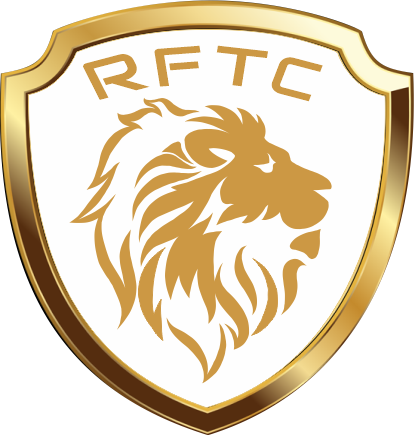Residential Addiction Treatment for First Responders
Call 866.993.4778


In the line of duty, first responders, including police officers, firefighters, and emergency medical personnel, face unimaginable stress and traumatic experiences on a regular basis. This exposure to constant crisis situations can often lead to significant mental health challenges, such as anxiety, depression, and post-traumatic stress disorder (PTSD). To cope with these emotional burdens, some first responders may turn to substances like alcohol or drugs, leading to addiction and further complicating their well-being.
The Unique Struggles of First Responders
First responders have a unique set of challenges that contribute to their susceptibility to addiction. The high-pressure nature of their work, coupled with long hours and irregular shifts, can disrupt their personal lives and create difficulties in maintaining healthy relationships. The constant exposure to traumatic events can lead to a state of emotional "burnout," making them more susceptible to self-medication through substance use.
Understanding Residential Addiction Treatment
Recovery First is a specialized mental health and addiction treatment center that offers comprehensive and immersive residential care for first responders. Unlike outpatient programs, our residential treatment involves staying at our state-of-the-art facility for an extended period. This provides an opportunity for a focused and uninterrupted healing process.
Receiving residential treatment at Recovery First can offer a wide range of benefits for first responders. Our dedicated team of medical and mental health professionals, along with a structured and therapeutic environment, ensure that each individual will receive the support they need to embark on a journey of recovery with the utmost care and compassion.
Receiving residential treatment at Recovery First can offer a wide range of benefits for first responders. Our dedicated team of medical and mental health professionals, along with a structured and therapeutic environment, ensure that each individual will receive the support they need to embark on a journey of recovery with the utmost care and compassion.

One of the primary advantages of residential treatment is the round-the-clock support and supervision provided by our team of medical and mental health professionals. This level of care ensures that first responders have access to immediate assistance whenever they need it, contributing to a safer and more effective recovery process.
At Recovery First, our residential treatment program follows a structured daily schedule that includes various therapeutic activities, individual counseling sessions, group therapy, and specialized therapies. This structured environment helps first responders establish routines, develop healthy habits, and focus on their healing journey.
Our residential treatment program offers a comprehensive approach to healing, combining evidence-based therapies with holistic practices. From cognitive behavioral therapy (CBT) to trauma-focused therapies, equine-assisted therapy, and mindfulness techniques, our treatments are tailored to address the unique needs of first responders.
We understand that each first responder's journey to recovery is unique. Therefore, our experienced team at Recovery First creates personalized treatment plans that consider individual traumas, triggers, and co-occurring disorders. This customized approach enhances the effectiveness of treatment and supports long-term success in sobriety.
Residential treatment at Recovery First fosters an atmosphere of camaraderie among first responders. By engaging in group therapy sessions and shared activities, individuals can connect with peers who understand the challenges they face. This peer support can be a powerful source of motivation and encouragement throughout the recovery process.
Our treatment center specializes in addressing mental health disorders and dual diagnosis, which is common among first responders. By focusing on both addiction and underlying mental health issues, we provide comprehensive care that targets the root causes of substance abuse.
The support doesn't end after completing the residential treatment program. At Recovery First, we offer aftercare services, including outpatient therapy and support groups, to ensure that first responders receive continued support and guidance as they transition back to their everyday lives.
Overcoming Stigma and Seeking Help
One significant barrier that first responders face in seeking addiction treatment is the fear of judgment and stigma from their colleagues and community. At Recovery First, we work diligently to create an environment where seeking help for mental health and addiction challenges is met with support and understanding.
The Importance of Aftercare and Support
After completing the residential treatment program at Recovery First, the journey to recovery continues with our aftercare programs. These include outpatient therapy and support groups, which play a vital role in maintaining sobriety and preventing relapse. Continued support is crucial for first responders to navigate the challenges of their profession while staying on the path to recovery.

Recovery First Is Here To Help
At Recovery First, we are dedicated to providing first responders with a lifeline of hope and healing from substance abuse and mental health issues. Through a safe and supportive environment, specialized therapies, and peer camaraderie, our residential treatment program addresses the unique needs of first responders on their path to recovery. We understand the importance of breaking down the stigma surrounding mental health and addiction in the first responder community, and we are here to support their journey towards better well-being and emotional resilience.
Frequently Asked Questions (FAQs)
The duration of residential treatment varies based on individual needs but typically lasts between 30 to 90 days.
Yes, at Recovery First, we involve family therapy to help address underlying family dynamics that may contribute to addiction.
Yes, confidentiality is a critical aspect of our residential treatment, ensuring that individuals feel safe and secure during their recovery.
Aftercare programs, such as outpatient therapy and support groups at Recovery First, are essential for ongoing support and relapse prevention.
The treatment program at Recovery First was specifically designed for first responders by a team of first responders who themselves have been through the recovery process. Our team is up to date on new and exciting breakthroughs in treatment that have been proven effective.

